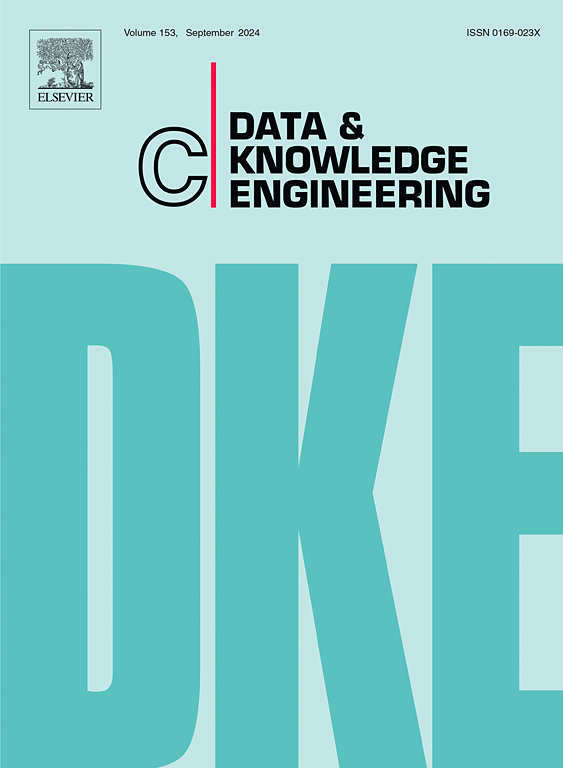Dirigo: A method to extract event logs for object-centric processes
IF 2.7
3区 计算机科学
Q3 COMPUTER SCIENCE, ARTIFICIAL INTELLIGENCE
引用次数: 0
Abstract
Real-world processes involve multiple object types with intricate interrelationships. Traditional event logs (in XES format), which record process execution centred around the case notion, are restricted to a single-object perspective, making it difficult to capture the behaviour of multiple objects and their interactions. To address this limitation, object-centric event logs (OCEL) have been introduced to capture both the objects involved in a process and their interactions with events. The object-centric event data (OCED) metamodel extends the OCEL format by further capturing dynamic object attributes and object-to-object relations. Recently OCEL 2.0 has been proposed based on OCED metamodel. Current research on generating OCEL logs requires specific input data sources, and resulting log data often fails to fully conform to OCEL 2.0. Moreover, the generated OCEL logs vary across different representational formats and their quality remains unevaluated. To address these challenges, a set of quality criteria for evaluating OCEL log representations is established. Guided by these criteria, Dirigo is proposed—a method for extracting event logs that not only conforms to OCEL 2.0 but also extends it by capturing the temporal aspect of dynamic object-to-object relations. Object-role Modelling (ORM), a conceptual data modelling technique, is employed to describe the artifact produced at each step of Dirigo. To validate the applicability of Dirigo, it is applied to a real-life use case. The quality of the log representation of the extracted event log is compared to those of existing OCEL logs using the established quality criteria.
Dirigo:为以对象为中心的进程提取事件日志的方法
现实世界的过程涉及具有复杂相互关系的多种对象类型。传统的事件日志(以XES格式)记录了以案例概念为中心的流程执行,它仅限于单对象透视图,因此很难捕获多个对象的行为及其交互。为了解决这一限制,引入了以对象为中心的事件日志(OCEL)来捕获流程中涉及的对象及其与事件的交互。以对象为中心的事件数据(OCED)元模型通过进一步捕获动态对象属性和对象到对象关系来扩展OCEL格式。最近提出了基于OCED元模型的OCEL 2.0。目前对生成OCEL日志的研究需要特定的输入数据源,生成的日志数据往往不能完全符合OCEL 2.0。此外,生成的OCEL日志因不同的表示格式而异,其质量仍未得到评估。为了应对这些挑战,建立了一套评估OCEL日志表示的质量标准。在这些标准的指导下,提出了Dirigo——一种提取事件日志的方法,它不仅符合OCEL 2.0,而且还通过捕获动态对象对对象关系的时间方面对其进行了扩展。对象角色建模(Object-role modeling, ORM)是一种概念数据建模技术,用于描述Dirigo每一步产生的工件。为了验证Dirigo的适用性,我们将其应用于一个现实生活中的用例。使用已建立的质量标准,将提取的事件日志的日志表示的质量与现有OCEL日志的质量进行比较。
本文章由计算机程序翻译,如有差异,请以英文原文为准。
求助全文
约1分钟内获得全文
求助全文
来源期刊

Data & Knowledge Engineering
工程技术-计算机:人工智能
CiteScore
5.00
自引率
0.00%
发文量
66
审稿时长
6 months
期刊介绍:
Data & Knowledge Engineering (DKE) stimulates the exchange of ideas and interaction between these two related fields of interest. DKE reaches a world-wide audience of researchers, designers, managers and users. The major aim of the journal is to identify, investigate and analyze the underlying principles in the design and effective use of these systems.
 求助内容:
求助内容: 应助结果提醒方式:
应助结果提醒方式:


